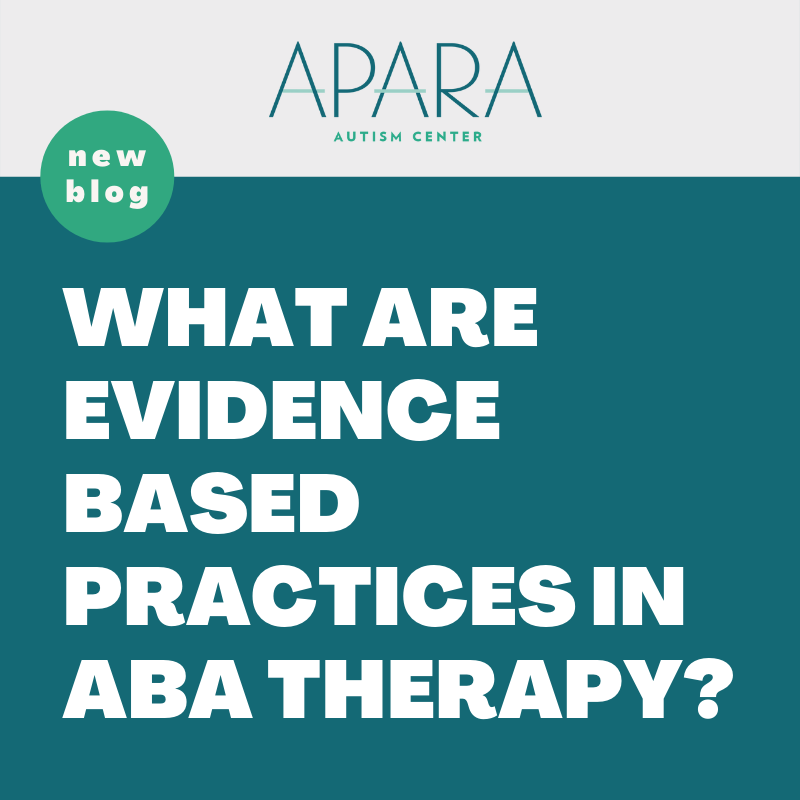In the age of the Internet, anything can be found with a quick Google search. While this can be highly convenient, we open ourselves up to finding resources that are not always credible. For example, many treatments for Autism Spectrum Disorder have been circulating, some proven to work, and others do not have the same scientific reliability.
Treatments that are trusted and used in ABA are known as Evidence Based Practices. These treatments are backed by a great deal of research, involve communication across providers, families, and insurance companies, and consider client values.
Here are some common practices used in ABA:
- Early and Intensive Behavioral Intervention
- Reinforcement
- Discrete Trial Training
- Natural Environment Teaching
- Functional Communication Training
Non-Evidence Based Practices are those that have not been subjected to satisfactory scientific inquiry and/or research, including investigation and demonstration of measurable, repeatable results. Claims may be lacking support or have been misinterpreted to fit into a treatment option. This could also mean that there simply has not been enough evidence to support the claims, yet. The use of these treatments may lead to ineffective treatment that can be wasteful, if not harmful, to the family and the child. This could also be detrimental to a families’ health, well-being, or even finances.
Commonly found non-evidence based practices include:
- Diet Change/Use of Supplements
- Transcutaneous Vagus Nerve Stimulation
- Sensory Integration Therapy
- Chelation Therapy
- Animal Therapies
The following resources can help determine the reliability of different treatments, evidence and non-evidence based.
- Association for Science in Autism TreatmentAutism Speaks
- Center for Disease Control – Autism Spectrum Disorder
For more information or questions about different treatments, feel free to reach out to your child’s BCBA.
Written by: Samantha Grosch, BCBA





